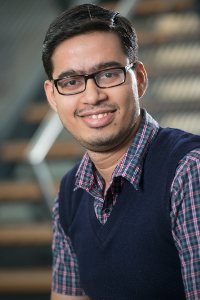
Sarvesh Nikumbh
LinkedIn • Other
Association with CMS
M.Tech. Programme in Modeling and Simulation
Epoch of Association
2010-12
Pre-CMS Education, Occupation, Field
• 2004 - 08: B.E. (Computer Science and Engineering), Mumbai University
• 2008 - 10: Project Engineer, Centre for Development of Advanced Computing (CDAC), Mumbai
• Worked on statistical models for machine translation and transliteration, rule-based systems
• Current: Ph.D. Researcher in the department of Computational Biology and Applied Algorithmics at the Max Planck Institute for Informatics (MPI-INF), Germany
Post-CMS Education, Occupation, Field
• Statistical Consultant at Open Analytics, Belgium
• Current: Ph.D. Researcher in the department of Computational Biology and Applied Algorithmics at the Max Planck Institute for Informatics (MPI-INF), Germany
Honours and Achievements
• Was awarded a scholarship from the French Government for pursuing an internship at INRIA, Grenoble in France, 2011.
• Was awarded a Microsoft Research India travel grant for presenting our work at the IEEE World Congress on Evolutionary Computation (CEC), held together with WCCI (World Congress on Computational Intelligence), 2012.
• Received Ph.D. Fellowship by the International Max Planck Research School for my doctoral studies at the MPI-INF, 2013 onwards.